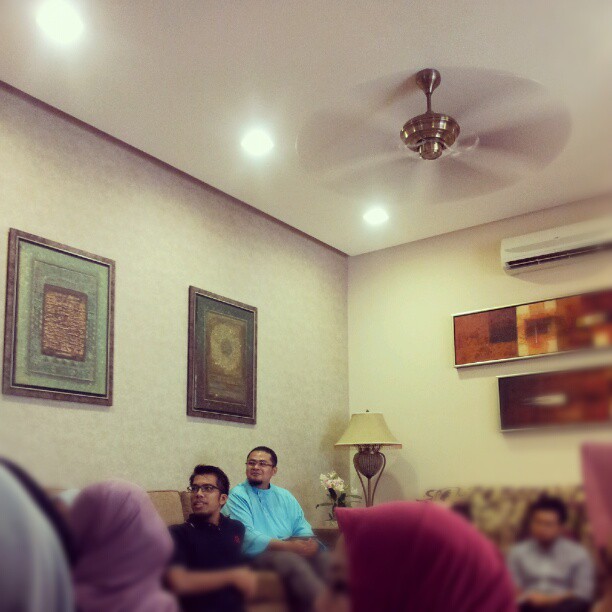
A topic to be discussed in a halaqah or usrah
“Hmm.. Allah had saved the grossly ignorant dwellers of Makkah who had not only tarnished Masjidil Haram with more than 300 idols but also performed circumambulation around it naked! Still, Allah had saved them from the attacks of Abrahah’s Elephant Army,” I tried to reflect the situation at Makkah just before the birth of Rasoolullaahsallallaahu’alayhi wasallam (peace and blessings of Allah be upon him).
“If such grossly ignorant Makkan dwellers were saved from destruction, why didn’t Allah save us? Why are we Muslims, continuously at the losing end? Aren’t we already worshiping Him? Aren’t we the ones who are striving in His Name? Why didn’t Allah help us then?” The questions that were disturbing my thoughts became more and more critical.
Moreover, if we were to view it in today’s context, whatever that’s bad and of ignorance continues to win and flourish, but whatever of Islam and the truth continues to be weakened and oppressed as if it is not being aided.
Where did it go wrong?
I searched deep in thought, while at the same time, my hands searched.. Each and every page of Allah’s word was turned and contemplated upon until I came to a particular promise by Allah:
{“And Allah would not punish them while you (Muhammad sallallaahu’alayhi wasallam) are amongst them, nor will He punish them while they seek (Allah’s) forgiveness.”} [Al-Anfaal 8 : 33]
That’s His promise.
That there will be no tribe that will be left in suffering, if in their midst laid Muhammadsallallaahu’alayhi wasallam (peace and blessings of Allah be upon him).
It doesn’t matter that the dwellers of Makkah were grossly ignorant, the reason being was that the imminent birth of Muhammad sallallaahu’alayhi wasallam will be from them, hence, it becomes a reason for Allah to save them, just as how Allah had saved those who strived during of the war of Badar, Uhud and even Khandaq which was of critical importance due to its situation of potentially endangering the lives of all Muslims back then.
Today, our Prophet sallallaahu’alayhi wasallam (peace and blessings of Allah be upon him) is not physically present and will never be.. because his body have returned to its origin. But how about the way we practice our religion? Is our Islam the same as Rasoolullaah’s Islam? Is the way we search for success and victory, similar as compared to the way Rasoolullah sallallaahu’alayhi wasallam searched for it? Or in simpler terms, does Rasoolullah sallallaahu’alayhi wasallam, figuratively speaking, ‘exist’ in our daily lives? Do we try to follow the way he lived, drink, eat or go about performing his responsibilities in the challenges of everyday life?
Maybe Rasoolullaah sallallaahu’alayhi wasallam is not present.. as many of those who are named Muhammad today and strive due to love for Prophet Muhammad.. neglects and do not follow the reference that was used by him sallallaahu’alayhi wasallam (peace and blessings of Allah be upon him).:
{“[Our Sibghah (religion) is] the Sibghah (religion) of Allah (Islam) and which Sibgah (religion) can be better that Allah’s? And we are His worshipers.”} [Al-Baqarah 2 : 138]
THE WAY OUT
Death lurks from the back, as well as the front.
Moses and the pious Children of Israel were surrounded and trapped. At their backs were Pharaoh and his army; while at the front was the vast sea. Logically, there’s no way out.
“Let’s just prepare ourselves for death!”
However, giving up the hope of Allah’s blessings is not a characteristic of those who deserve to be helped. Because all the narrow mindedness of this worldly life can never be compared to the Allah’s vast powers and ability to provide help.
{“And whoever fears Allah and keeps his duty to Him, He will make a way for him to get out (from every difficulty). And He will provide him from (sources) he could never imagine.”} [Al-Talaq: 2-3]
The sea was parted, providing help through a safe avenue which was totally unexpected and unthinkable for Moses and the Children of Israel. Even as humans of a low standing, they were saved and able to continue their journey while the mighty Pharaoh and his army who has managed to be in power and dictate their people for a long time, easily fell defeated, drowned in the sea.. because they are too lowly as compared to Allah All Mighty and All Powerful.
The condition for success is TAQWA (Taqwa = God consciousness – the love and fear that a Muslim feels for Allah. [A person with taqwa desires to be in the good pleasures of Allah and to stay away from those things that would displease Allah. He is careful not to go beyond the bounds and limits set by Allah. www.islamicemirate.com/index.php]).
CONDITION OF TAQWA
Taqwa is not merely a slogan. It is also not a mode for the Friday prayers Imam to put his congregation to sleep.
Taqwa is the yardstick that Allah will use to measure the qualities of humans. The best of you are those who have the highest form and value of taqwa.
“What is Taqwa?”, asked Umar ibn al-Khattab towards Ubayy ibn Ka’ab (radhiyallaahu’anhuma).
“Have you ever walked through a path full of thorns?” replied Ubayy with a probing question.
“Yes I have,” Umar replied.
“What did you do as you walked?” continued Ubayy.
“I would slightly lift my thobe and walk slowly and carefully,” replied Umar.
“And so, that is TAQWA!” concluded Ubayy ibn Ka’ab towards Umar ibn al-Khattab’s question regarding TAQWA.
TAQWA is the measure of the quality of humans who have to continuously face a path of various challenges. There will be benefits as well as losses. There will be things that are permissible and non-permissible… a person of Taqwa will consider every single matter in his life as a whole. He will proceed with caution, be smart to control the steps that he will take, and be concerned and not heedless towards any challenges that will come in his way throughout his life. That is TAQWA.
A person of Taqwa is not someone who would live life as he likes.
A person who strives for Taqwa is not someone who strives as he likes.
They would carefully consider every single law of Allah, things that will lead to success and things that would lead to failure and doom.
THE LAWS OF ALLAH
The question is, how does the law of Allah work?
“Abide by the Qur’an and Sunnah,” is probably what we all would generally state.
Exactly, and it’s true.. however, maybe it’s not yet clear, complete or even practical.
The guidance of Allah is there, in the Qur’an and Sunnah, but these are not the only references where the guidance of Allah exists in this life. There is guidance from the two main texts, and there is guidance from the rules of the universe.
The rules of the texts are termed as Syariatullah.
The rules of the universe are termed as Sunnatullah.
OUR PROPHET, SYARIATULLAH AND SUNNATULLAH
As Prophet Muhammad sallallaahu’alayhi wassalam taught us how to go about leading our daily lives, he often provided a demonstration that would enable a person to encompass the ways of Syariatullah and Sunnatullah.
i. Daily Living
Just observe how slaughtering is performed. We were taught to slaughter in the best manner. And the Sunnah of it can be explained through the practice of saying the ‘Basmala’ (Bismillaahirrahmaanirraheem) and the use of a sharp knife.
What is the purpose of using a sharp knife?
“So that the chicken would feel less pain!” would be the standard answer for most of us.
“Syariat (Rules of Allah) is provided for the benefit of mankind, not the chicken,” I would explain.
The use of a sharp knife will fasten the work of slaughtering. There would be lesser energy used which would contribute to a more productive outcome. Efficiency and effectiveness would increase.. to put it in today’s context, our Prophet sallallaahu’alayhi wasallam (peace and blessings of Allah be upon him) was teaching us on matters regarding productivity.
Therefore, the quality of a good slaughter is not just through saying of the Basmala, but also depends on the usage of sharp knife.
ii. Matters of Striving in life
“I am the Messenger of Allah, I am most loved by Allah, Allah have ordained for me to migrate and strive for His religion, Allah will definitely help me..!?”
Has there ever been a moment whereby the Prophet sallallaahu’alayhi wassalam thought that way?
Did the Prophet ever perceived that as long as his mission was in Allah’s name, for Islam and the truth, that the mission would definitely result in victory, hence he would belittle the importance of planning and strategy?
The answer is… Never once in his life!
For the migration, the Prophet sallallaahu’alayhi wasallam (peace and blessings of Allah be upon him) would utilize every available wisdom and would maximize opportunities for success with the consideration of all forms of strategy that it would be the principle reference to what would be named later as THE SCIENCE OF STRATEGY.
The planning and strategy of the Prophet sallallaahu’alayhi wasallam (peace and blessings of Allah be upon him) was so vast that his companions had to ask, which plan is a revelation from God and which plan is his own professional view?
The revelations from God would be something that is a must to follow and abide by inSyariatullah terms. While in Sunnatullah terms, there is a need for continuous discussions, analysis and work as a whole.
There is no higher or lower preference between meeting the demands of Syariatullah andSunnatullah.. because both make up the rules of Allah for the welfare of human lives. The textual verses of rules that we are bound to follow and the sciences of the rules of the universe are both to be fully implemented as a whole.
CONSTANTINOPLE AND THE MEASURE OF GOD CONSCIOUSNESS
Such an approach towards the question of Syariatullah and Sunnatullah, was not only recorded during the times of Prophethood, whereas it continued to be a yardstick for the perfection of the works of the Ummah in future agendas that followed.
((“Constantinople will definitely be freed. The best of leaders is its leader (the one who conquers it) and the best of armies is its army (which conquers it)”)) [Hakim, 4.422; Bukhari, Tarikh al-Saghir, 139; I. Hanbal, 4.335]
Year 44 of the Hijri calander, Mu’awiyah ibn Abi Sufyan (radhiyallaahu’anhu) sent the first delegation of Muslims with the sole purpose of subduing the city of Constantinople. Many of the Prophet’s companions participated, including Abu Ayyub al-Ansari and Ibn Abbas himself. They had set out with a strong belief of the possibility of attaining success due to the promise of the Prophet sallallaahu’alayhi wassalam, that the great city of Constantinople along with its pride and arrogance will fall in the hands of Islam, not to be colonized but to be freed from the slavery between their own people.
How was the strength of Constantinople back then? How was the climate there? How was the socio-political condition of its residents?
The companions of the Prophet (peace and blessings of Allah be upon him) didn’t know. Even so, because they were so convinced with the promise of the Prophet, that there would be a future victory for Islam… they proceeded.
The mission wasn’t successful. It didn’t mean that it failed; it was just not the time for success. Abu Ayyub al-Ansari (radhiallahu’anhu) died a martyr. Even though they were the generation of companions that were under the direct tutelage of Rasoolullaah sallallaahu’alayhi wassalam, still, Allah had not allowed success because there’s a big lesson to be learnt that needs to be heeded by the Ummah (Muslim Nation).
Efforts were then made in the period of Sulaiman bin Abdul Malik, in the era of Harun al-Rasheed and was continuously tried agan and again.. even till the era of Sultan Yildirim Beyazit (1389-1403) and Murat II (1421-1451) during the Ottoman era.. the promise of the Prophet was still not yet fulfilled.
Until the rise of the era of the Ottoman Sultanate, when the 7th Sultan titled Sultan Muhammad bin Murad II was crowned. He was a normal human being who has special qualities.
Special in the passion towards the mission of Constantinople.
Special in the possession of a character with a high virtue and being vast in knowledge.
Special in mastering the proficiency of governing and the art of war.
Special towards the practice of Syariatullah and Sunnatullah which was highly valued in the name of TAQWA.
Sultan Muhamamad al-Fatih researched regarding the city of Constantinople from a strategic aspect, political aspect and social aspect. He knew enough about the strengths and weaknesses of the city he was about to subdue, therefore he proceeded in accordance to the information that he had gathered. And even his army was at a similar level of God consciousness and noble attributes that he possessed.
While he was with the thousands of his army, marching towards Constantinople, they had passed by a field of grapes. Sultan Muhammad pretended to fall ill.
“Only grapes would cure my illness,” he proclaimed.
However, not even a soldier from his army had grapes with him. The field of grapes that wasn’t theirs was not even touched and it was not even brought up as one of the proposed solutions to solve the problem.
“I am fine now!” exclaimed Sultan Muhammad al-Faatih.
It was proven that his army was the best of armies. Sultan Muhammad was ‘cured’ as he observed the high level of Syariatullah that his army possessed as seen with their TAQWA, as well as them abiding the laws of Sunnatullah.
After the offer for a peaceful resolution was rejected at the last minute, attacks were launched one after another… the battle went on for more than a month until finally, came the moment that was promised by Allah and His messenger.. Constantinople collapsed in the hands of a normal human being who possess certain special qualities… Sultan Muhammad bin Murad II a.k.a. Sultan Muhammad al-Faatih.
A normal human being who’s special in some aspects, was able to forge success due to combining the practice of the laws of Syariatullah and Sunnatullah.
The Prophet’s (sallallaahu’alayhi wassalam) saying regarding the victory of Islam in the city of Constantinople didn’t occur in the hands of his companions. It was obtained in the hands of the best of leaders and army, more than 800 years after that promise was made by the Prophet.
That is the formula for the success of Islam.
Islam was not won only due to its mission being an Islamic mission.
Success happens when there is a completion of the right form of efforts to meet with every single factor that is required for success.
Come on strivers of Islam.. if the goal is to bring victory to Islam, don’t give an excuse that the walls of Constantinople are too strong to fall or that the journey is too far. Don’t give an excuse that it is too tricky to solve. Success is near, if those who strive completes the conditions of TAQWA. Which is the compliance of Syariatullah and Sunnatullah.
Integrity is important.
Commitment towards the Syari’ah laws while campaigning is important.
What’s permissible and not permissible will always be important.
Record efficiency and management is important.
Usage of all forms of communication skills is important.
Technology is important.
Both Islamic Law and Science is important.
That is the formula for the success of Islam.
FINAL MOTIVATION
“The city of Constantinople will be in the hands of this nation!” reminded the Prophet (peace and blessings of Allah be upon him) towards his companions who were tiring in the battle of Khandaq.
Constantinople?
That sort of promise is too much.
Why so? The number of residents of Madeenah were small. Furthermore, the Prophet (sallallaahu’alayhi wassalam) and his companions were caught in between life and death, as they were being surrounded by the entire rank of Arab Nationalists who teamed up to form the Coalition army. And suddenly, the Prophet gave a promise that we, who were very small in number as well as in a state of in between life and death, will subdue Constantinople, the biggest city in the world!
Isn’t this something impossible?
This is how the Prophet (sallallaahu’alayhi wassalam) motivated his companions.
Believing after seeing something has no value of faith. It is only a form of attestation towards something that has been produced. This type of belief is a cheap form of belief that has no need for effort and sacrifice.
However, the Prophet (peace and blessings of Allah be upon him) taught his companions to believe before seeing something, and to work hard towards realizing what they believe in.
That is the greatness of the motivation of the mind of a professional Mu’min (true, pious and righteous believer).
They believe before they see and work hard to see what they believe.
We have never seen Paradise, however, we believe in it. Therefore, work hard to see what we believe.
We have also never seen the success of Islam; furthermore, we are clouded by one failure after another. However, we believe that the future belongs to Islam. Therefore, work hard to see what we believe.
Indeed, victory belongs to Islam.
If all the conditions that lead to it are met.
HASRIZAL
43000 BSP
Translation: Brother Ridhuan Muhammad Hasim
 Saifulislam.Com Pendidikan Jalan Islah
Saifulislam.Com Pendidikan Jalan Islah
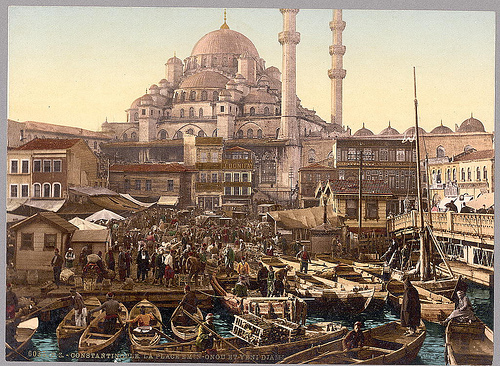
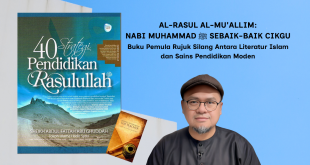
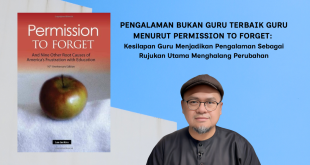
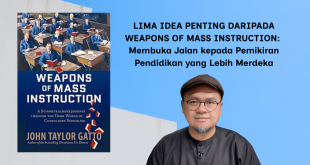

In my opinion, one must be consistent with their own beliefs also in order to make it work.I suggest going for ruqyah treatment first and a call to the author’s mother would make a good start for the joint venture to work.